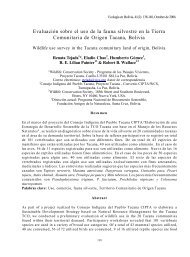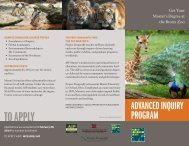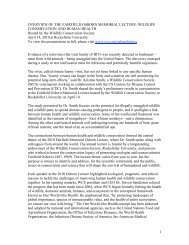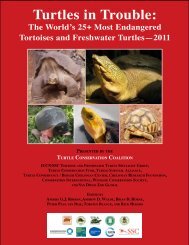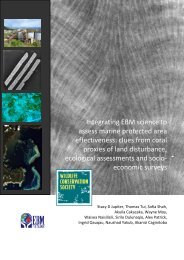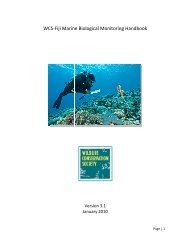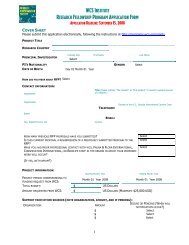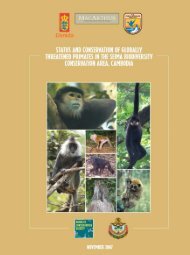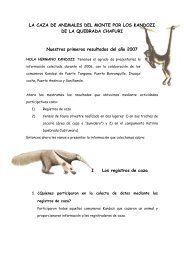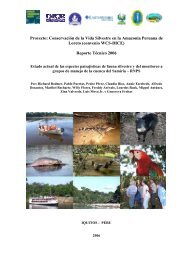You also want an ePaper? Increase the reach of your titles
YUMPU automatically turns print PDFs into web optimized ePapers that Google loves.
About the Canadian Boreal Initiative<br />
The Canadian Boreal Initiative is a national convener for conservation in<br />
<strong>Canada</strong>’s Boreal Forest. We work with conservation organizations, First<br />
Nations, industry and other interested parties – including members of<br />
the Boreal Leadership Council – to link science, policy and conservation<br />
solutions across <strong>Canada</strong>’s Boreal Forest. For more information visit:<br />
www.borealcanada.ca<br />
About Wildlife Conservation Society <strong>Canada</strong><br />
Wildlife Conservation Society <strong>Canada</strong> was established in May 2004 as a<br />
Canadian non-government organization with a mission to save wildlife<br />
and wildlands by improving our understanding of and seeking solutions<br />
to critical problems that threaten key species and large wild ecosystems<br />
throughout <strong>Canada</strong>. We implement and support comprehensive field<br />
studies, particularly in Ontario’s Far North, gather information on wildlife<br />
and seek to address conservation challenges by working with First<br />
Nation communities, governments, regulatory agencies, conservation<br />
groups, and industry. For more information visit: www.wcscanada.org<br />
About the Authors<br />
Matt Carlson is an ecologist with the Canadian Boreal Initiative and the<br />
ALCES Group who is focused on the application of scenario analysis to<br />
inform land use policies capable of balancing resource development with<br />
the maintenance of ecological integrity.<br />
Cheryl Chetkiewicz is an Associate Conservation Scientist with <strong>WCS</strong><br />
<strong>Canada</strong> focused on broad-scale and community-based conservation<br />
planning in Ontario’s Far North, specifically wildlife research and monitoring<br />
and developing cumulative effects landscape models that address<br />
land use and climate change.<br />
Cover photo: Logging in the Red Lake region of Ontario by © Garth Lenz<br />
© 2013 The contents of this paper are the sole property of the authors<br />
and cannot be reproduced without permission of the authors.<br />
Canadian Boreal Initiative, 30 Metcalfe Street, Suite 402, Ottawa,<br />
Ontario, K1P 5L4<br />
Wildlife Conservation Society <strong>Canada</strong>, P.O. Box 10316, Thunder Bay,<br />
Ontario, P7B 6T8<br />
iv<br />
Canadian Boreal Initiative | Wildlife Conservation Society <strong>Canada</strong>


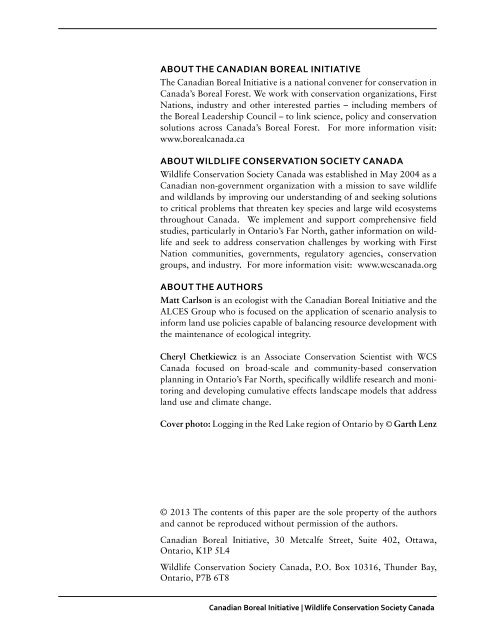
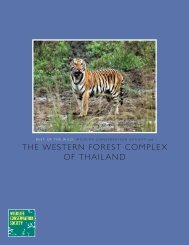
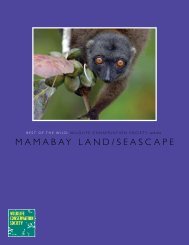
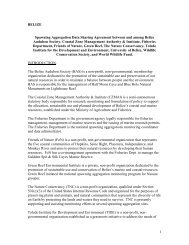
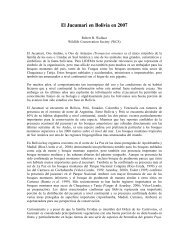
![RaLand / SeaScape [PDF] - Wildlife Conservation Society](https://img.yumpu.com/49974326/1/190x245/raland-seascape-pdf-wildlife-conservation-society.jpg?quality=85)
